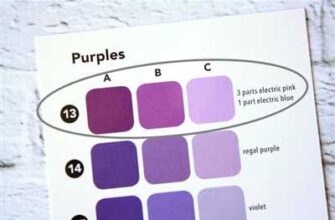
Young adult (YA) fiction has become one of the most popular and groundbreaking genres in today’s literary world. It appeals to readers of all ages, from teenagers to adults, and explores a wide range of subjects that matter to young people. Whether you want to write YA to teach important lessons, make readers laugh or cry, or simply entertain them, the boundaries are open for you to stand among the best authors in the field.
When it comes to writing YA, one of the most important things to keep in mind is the age group you’re targeting. YA typically encompasses readers aged 16 and up, although many younger readers enjoy the genre as well. The characters and subjects you choose should resonate with this specific age group, but that doesn’t mean you have to preach or dumb down your writing. YA readers are just as discerning and intelligent as adults, and they appreciate well-written stories that speak to their experiences and emotions.
One of the key elements that sets YA fiction apart from other genres is the diverse range of perspectives and voices it embraces. Whether you’re a writer of color, a woman, or someone from any other underrepresented group, YA provides a platform for your stories to be heard. YA literature celebrates diversity and explores themes that are often overlooked in other genres, making it an inclusive and powerful force in the literary world.
Writing YA doesn’t mean you have to abandon the subjects or styles you love; in fact, YA can be a great way to introduce these subjects to a wider audience. Many YA books have tackled intense and mature themes, from racism and discrimination to mental health and sexuality. By exploring these topics through the eyes of young characters, YA authors are able to engage readers and spark conversations about difficult but important issues.
If you’re a writer looking to break into the YA publishing world, here are five pieces of advice from some of the most successful YA authors:
1. Helena Bone, author of “Down to Skies,” says, “Write what you want to read, not what you think others want to read. Stay true to your voice and your vision, and your readers will appreciate it.”
2. Dr. Papa Blackman, a YA author known for her groundbreaking work, advises, “Don’t be afraid to explore new territories and push the boundaries. YA readers are open to new ideas and perspectives.”
3. Making a name for yourself in the YA world often requires building relationships with readers and other authors. Engage in online communities, attend book events, and be open to collaborations with fellow writers. Support other authors and they will support you in return.
4. Respond to readers’ comments and messages. YA readers are passionate and love to connect with authors. Engaging with your audience not only shows that you value their input, but it also helps build a dedicated fan base.
5. Choose titles and book covers that attract young readers. YA books often have eye-catching covers and titles that reflect the themes and emotions in the story. Don’t be afraid to experiment and ask for feedback from your target audience.
Thanks to these and many other YA authors, the genre continues to thrive and inspire young readers around the world. So, if you’re a writer looking to make your mark in the YA fiction world, just remember: write what you love, explore new territories, engage with your audience, and create stories that resonate with young hearts and minds.
Young Adult Books: How to Write Groundbreaking YA
Writing a groundbreaking young adult (YA) book is no easy task. It takes skill, creativity, and the ability to connect with teenage readers. In this article, we will explore some tips and advice on how to make your YA book stand out among the many others out there. Whether you’re a seasoned writer or a newcomer to the world of YA novels, these tips will help you navigate the often overwhelming publishing landscape.
1. Know your audience:
- YA books are written for teenagers, so it’s important to understand their interests and challenges.
- Don’t preach or sugarcoat difficult subjects. Instead, explore them with honesty and empathy.
- Make your characters relatable and realistic.
2. Push the boundaries:
- YA books should address important issues while pushing the boundaries of what is typically expected in children’s or grown-up literature.
- Don’t shy away from complex or taboo subjects. YA readers are often more open-minded than adults.
- By doing so, you will offer a fresh perspective and provide a voice for those whose stories are not often heard.
3. Dive into the world of teenagers:
- Observe how they interact, what they care about, and the challenges they face.
- Listen to their voices and use them to create authentic and relatable dialogue.
- YA books should capture the essence of the teenage experience, including the ups and downs of school, friendships, and first loves.
4. Stand out from the crowd:
- Think outside the box and come up with unique storylines and concepts.
- Don’t be afraid to take risks with your writing.
- Experiment with different narrative techniques, playing with structure, and incorporating diverse perspectives.
5. Research and read widely:
- Read other groundbreaking YA authors like Helena Blackman and Mark Oshiro.
- Take note of what makes their books stand out.
- Study the craft of writing and continuously seek to improve your skills.
In conclusion, writing groundbreaking YA books requires a deep understanding of teenagers, a willingness to push boundaries, and a dedication to creating authentic and relatable characters. By following these tips, you’ll be well on your way to creating a YA book that resonates with readers and leaves a lasting impact.
The misunderstood world of young adult books
Young adult books, often referred to as YA books, have become a groundbreaking genre in today’s literary landscape. However, they are still widely misunderstood by many readers, both young and old.
When you think of YA books, you may envision novels written for younger readers, but the truth is, YA books are meant for readers aged 16 and older. The age of the reader does not matter as much as the content and themes explored in these books.
YA books, like any other genre, vary greatly in their subject matter and writing styles. Some YA books may address serious issues such as mental health, abuse, or social justice, while others may focus on lighter themes like romance or friendship. The wide range of YA books means there is something for every reader.
One of the most common misconceptions about YA books is that they are only for teenagers. However, YA books can be enjoyed by readers of all ages. In fact, many adults are avid readers of YA books and find them just as engaging and thought-provoking as any other genre.
YA authors are often praised for their ability to write relatable characters and explore complex topics in a way that is accessible to readers of all ages. These authors are not afraid to push boundaries and tackle difficult subjects, making YA books a powerful tool for empathy and understanding.
If you’re a young adult book writer or aspiring to be one, it’s important to know that you’re not alone. There are many resources and advice available to help you navigate the world of YA writing. Websites, blogs, and online communities are great places to connect with other writers, share ideas, and get feedback on your work.
When it comes to YA books, the most important thing is to write authentically and from the heart. Don’t try to force yourself into a mold or chase trends. Instead, focus on telling the story you want to tell, in a way that is true to your voice and vision.
YA books have the power to open up conversations and bridge the gap between different age groups. They have the ability to educate, inspire, and entertain readers, regardless of their age.
So, next time you come across a YA book, don’t dismiss it as “just for teenagers.” Give it a chance, and you may find yourself pleasantly surprised by the depth and quality of storytelling that awaits you.
What makes a book YA

When it comes to Young Adult (YA) literature, there are certain characteristics that define the genre. YA books are written specifically for teenagers and young adults, usually between the ages of fifteen and eighteen. But what really makes a book YA? Let’s explore the key elements that distinguish YA novels from others.
First and foremost, YA books often feature young protagonists who are going through significant personal growth and development. These characters are relatable to teenagers and young adults, as they navigate the challenges of adolescence and the transition to adulthood.
YA books also tend to touch on subjects and themes that are relevant to this age group, such as identity, self-discovery, relationships, and coming-of-age experiences. The stories explore a wide range of issues, from love and friendship to societal pressures and personal struggles.
Another characteristic of YA literature is the writing style. YA books are typically fast-paced and engaging, capturing the attention of young readers who may have shorter attention spans. The language used is often accessible and relatable, allowing teenagers to connect with the characters and storylines.
YA books also push boundaries and explore controversial or sensitive topics. They address topics like mental health, diversity, and social justice issues, exposing young readers to different perspectives and encouraging empathy and understanding.
One of the most important aspects of YA literature is the way authors tackle these subjects. YA books don’t “preach” to readers; instead, they present complex issues and encourage readers to form their own opinions and responses. This allows young readers to develop their critical thinking skills and learn to make informed decisions.
YA books cover a wide range of genres, including fantasy, science fiction, contemporary, and romance. They may even blur the lines between genres, combining elements to create unique and captivating stories. The diverse range of YA titles ensures that there is something for every reader.
So, whether it’s a groundbreaking dystopian novel like “The Hunger Games” by Suzanne Collins or a funny and relatable coming-of-age story like “The Perks of Being a Wallflower” by Stephen Chbosky, YA literature has the power to captivate and inspire young readers.
In conclusion, what makes a book YA is not just the age of the characters or the reading level. It’s the subjects, themes, writing style, and the way these books connect with young readers. YA literature allows teenagers to see themselves reflected in the pages and explore the world around them. So, if you’re looking to write a YA book, remember to stay true to the voices of young people and create stories that resonate with them.
Thanks for reading this article. If you’re interested in YA literature, check out the works of authors like Angie Thomas, Malorie Blackman, and Mark Oshiro. You’ll discover a world of amazing stories and diverse characters that will leave a lasting impact.
Does the age of an author matter when writing YA fiction
When it comes to writing Young Adult (YA) fiction, does the age of the author really matter? This is a question that has been debated among writers and readers alike. While some argue that only young authors can truly understand the complexities of being a teenager in today’s ever-changing world, others believe that age should not be a determining factor when it comes to writing for this demographic.
One thing is for certain – YA fiction is not confined to a specific age group. YA novels can be enjoyed by readers of all ages, as they often explore universal themes and subjects that resonate with people of different generations. In fact, many adults find themselves drawn to YA fiction because it reminds them of their own teenage years and allows them to relive some of those experiences.
Just because an author is not a teenager themselves, it doesn’t mean they cannot write authentic YA fiction. Some of the most groundbreaking and well-known YA authors are adults who have successfully captured the teenage experience. Take J.K. Rowling, for example, who wrote the Harry Potter series – a collection of books that has captivated readers of all ages.
Another example is John Green, author of “The Fault in Our Stars”, who is well into his thirties. His novels explore deep and complex topics, such as love, loss, and mortality, through the eyes of young protagonists. Green’s ability to understand and empathize with teenagers has earned him a loyal following of readers, both young and old.
That being said, there are some considerations that authors should keep in mind when writing YA fiction. While age is not the only factor, it can influence the way readers perceive the authenticity of the story and characters. For example, if you’re a fifteen-year-old author writing about experiences and perspectives that are beyond your years, readers may find it harder to connect with your work.
On the other hand, if you’re a thirty-year-old author writing about the experiences of teenagers, some readers may question whether you truly understand the challenges and emotions that come with being a young adult.
So, does the age of an author really matter when writing YA fiction? The answer is not black and white. While it’s important for authors to have a genuine understanding of their audience and the world they are writing about, age alone does not determine an author’s ability to write compelling YA fiction.
Ultimately, it is the story, characters, and the emotions they evoke that matter most to readers. If an author can create a relatable and engaging story, it doesn’t really matter how old they are.
So, whether you’re fifteen or fifty, if you have a story to tell and a passion for YA fiction, don’t let your age hold you back. Keep writing and don’t be afraid to explore the boundaries of what readers expect from a YA author.
Papa don’t preach
Writing young adult (YA) fiction is a unique and challenging endeavor. Many authors want to explore subjects and themes that are often misunderstood or ignored in children’s novels, but they also need to navigate the boundaries of what is appropriate for a younger audience.
Helena Blackman, author of the groundbreaking YA novels “Fifteen Skies” and “Papa Don’t Preach,” knows firsthand the difficulties of writing for young readers. She has been doing it for over five years and has written many books that have been well received by both teens and adults.
Writing for young readers can be both rewarding and overwhelming. On one hand, there is the joy of knowing that your words may have a profound impact on a young person’s life. On the other hand, there is the pressure to choose subjects and themes that will resonate with them and teach important lessons.
When it comes to writing YA fiction, the author must be open to exploring a wide range of subjects and themes. YA fiction can touch on anything from love and friendship to identity and societal issues. It is a genre that allows for the exploration of complex emotions and experiences that young adults often face.
One thing that makes YA fiction stand out is its ability to connect with readers of all ages. While the target audience may be young adults, many adults find themselves drawn to YA novels because of the relatable characters and the universal themes they explore.
In her novels, Helena Blackman often tackles sensitive and taboo subjects, such as mental health, racism, and sexuality. She believes that it is important to open up these conversations for young readers, as it allows them to gain a better understanding of the world around them.
When it comes to writing YA fiction, there are no hard and fast rules. Each author has their own unique approach, and what works for one may not work for another. However, there are a few key elements that can make a YA novel successful.
- Compelling characters: YA novels often revolve around young protagonists who are navigating the complexities of adolescence. These characters need to be relatable and well-developed so that readers can connect with them on a deeper level.
- Engaging plot: YA fiction should have a strong, compelling plot that keeps readers hooked from the first page to the last. It should be filled with twists and turns that keep readers guessing.
- Authentic voice: YA fiction should have a voice that speaks to the experiences and concerns of young adults. It should feel authentic and capture the nuances of adolescence.
In conclusion, writing YA fiction is a challenging but rewarding endeavor. It allows authors to explore sensitive and important subjects while also captivating readers of all ages. Whether you’re a grown adult or a young teenager, YA fiction has the power to transport you to new worlds and teach you valuable lessons along the way. So don’t be afraid to dive into the world of YA fiction and discover the magic it holds.
16 responses
When it comes to writing YA fiction, there are a plethora of opinions and advice out there. As the skies open up and the world becomes a little more interconnected, teenagers are no longer bound by the boundaries that once held them back. Unless they are writing an adult novel, they can choose to write about subjects that they are passionate about, regardless of their age.
So, what does all this mean for young writers? Well, it means that others will listen to your voice. They will check out your blog or read your articles, even if you haven’t published a book yet. Thanks to the internet and the power of social media, age is no longer a barrier in the world of writing.
But as a young author, you might find yourself misunderstood. People may think that you’re just a teenager who doesn’t know what they’re talking about. And that’s why it’s important to choose your subjects carefully. Making sure the things you write about have a deeper meaning and explore important topics will show that you are serious about your craft.
As the groundbreaking YA novelist Alice Papa once said, “Young writers have the power to teach the world important lessons.” And she’s right. Whether you want to preach about feminism or teach others about the importance of kindness, writing YA allows you to do that.
However, it’s not just about the subjects you choose, but also about how you write them. YA novels are known for their relatable and well-developed characters. This is a lesson that even grown authors can learn from. The characters in your YA novel should feel real and authentic, so young readers can connect with them on a deeper level.
One of the most important tips when it comes to writing YA is to have fun. YA novels should be enjoyable and engaging. Don’t be afraid to incorporate humor and funny moments. After all, teenagers want to read books that make them laugh and feel good.
In today’s publishing world, there is a growing market for YA fiction. Readers of all ages are drawn to these novels, not just children and teenagers. So don’t let anyone tell you that YA is only for young readers.
In this article, we’ve explored 16 responses from authors, both young and old, about how to write YA. From tips on creating memorable characters to navigating the world of publishing, these responses provide valuable insights for any writer looking to venture into the world of YA fiction.
So, whether you’re a seasoned writer or a young aspiring author, don’t be afraid to take your ideas and put them down on paper. The world needs more YA novels, and you have the power to make a mark in this genre. Don’t let anyone tell you otherwise.










